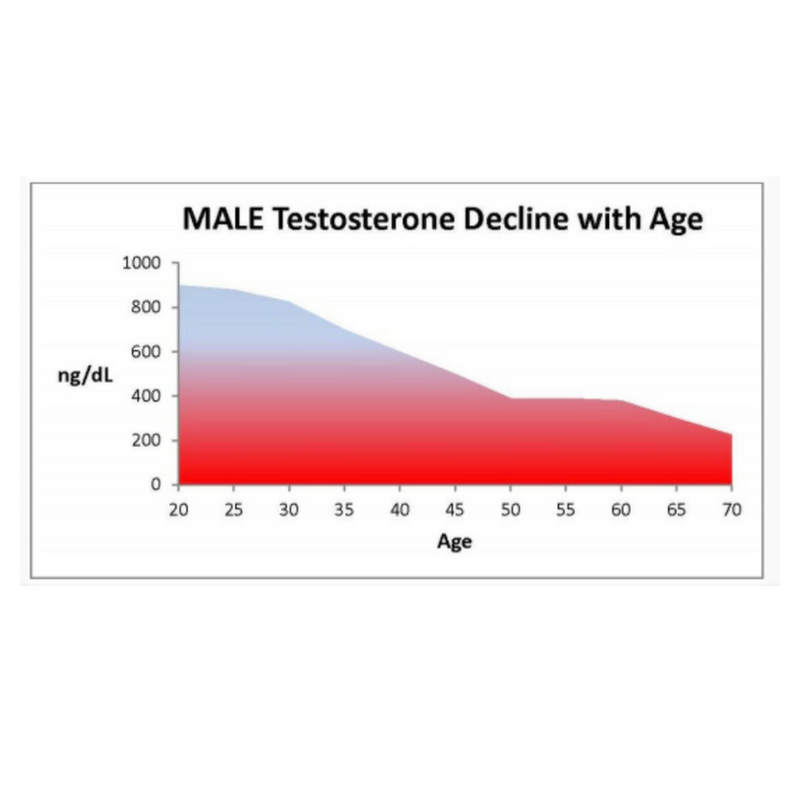
Symptoms of Low Testosterone
However, there are many additional and troublesome symptoms of low testosterone – such as a decrease in muscle mass, increased body fat, fatigue, weakness, mental fog, problems sleeping and emotional changes – like depression and decreased motivation. In some cases, studies even show that low testosterone can lead to increased risk for heart disease, Alzheimer’s disease and osteoporosis.
Decrease of Testosterone with Age
Testosterone levels in men start dropping after age 30. At first, the change is gradual and hardly noticeable, since testosterone levels decrease by about 3% every year. This really starts adding up though around age 50 for most men – that’s when the average guy starts feeling the cumulative drain of low testosterone.
How do you know where your testosterone level is? A simple blood test will tell us. Then it’s important we discuss options and you as an individual, not a statistic. Testosterone therapy is certainly not a one-size-fits-all magic pill, and that’s why it’s crucial that you work with a knowledgeable and ethical doctor who will honestly tailor this increasingly popular anti-aging treatment to your specific needs. There is still some controversy regarding testosterone therapy in men, and we will analyze what’s most beneficial for you versus what could be potentially harmful. Some studies suggested that treating older men – or men already diagnosed with heart disease- could increase the risk of cardiovascular injury. However, many studies also suggest testosterone therapy is beneficial to cardiovascular health in more middle-aged men. Prostate Cancer is another area we will examine closely. In the past, there has been concern that testosterone therapy could increase the risk of prostate cancer or cause already-existing prostate cancer to grow. However, more recent studies suggest that there is no significant link between prostate cancer risk and testosterone therapy.
Considering Your Options
These are all situations I’ll help you sort through to decide what’s most beneficial for you given your health history, family medical history and your life goals. Since testosterone therapy is seemingly safest and most effective the earlier middle-aged men start it, there’s no time to waste. The good news is – if you determine testosterone therapy is right for you – you could start feeling the therapy’s effects in just weeks. Knowledge is power, and you should know your options when it comes to enjoying the fullest, happiest life possible.
To schedule your Consultation, call (504) 267-4549 or visit our online booking software to schedule your consultation.
← Blog